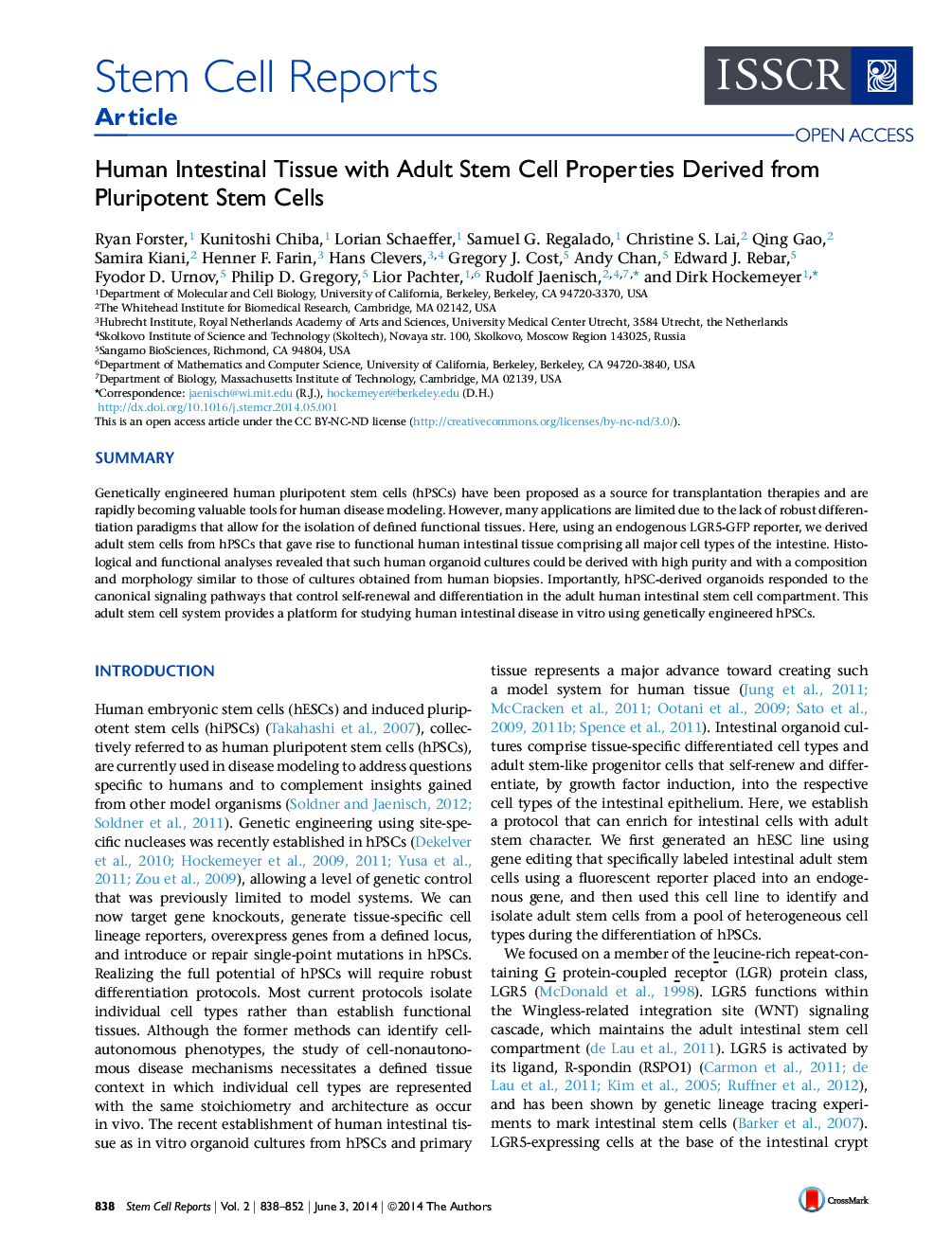| Article ID | Journal | Published Year | Pages | File Type |
|---|---|---|---|---|
| 2093733 | Stem Cell Reports | 2014 | 15 Pages |
•We isolate intestinal organoid cultures from hPSCs through teratoma differentiation•Organoids comprise all cell types of the intestinal epithelium•RNA-seq reveals a high similarity to organoids isolated form primary tissue•Organoids can respond to pathways that control self-renewal and differentiation
SummaryGenetically engineered human pluripotent stem cells (hPSCs) have been proposed as a source for transplantation therapies and are rapidly becoming valuable tools for human disease modeling. However, many applications are limited due to the lack of robust differentiation paradigms that allow for the isolation of defined functional tissues. Here, using an endogenous LGR5-GFP reporter, we derived adult stem cells from hPSCs that gave rise to functional human intestinal tissue comprising all major cell types of the intestine. Histological and functional analyses revealed that such human organoid cultures could be derived with high purity and with a composition and morphology similar to those of cultures obtained from human biopsies. Importantly, hPSC-derived organoids responded to the canonical signaling pathways that control self-renewal and differentiation in the adult human intestinal stem cell compartment. This adult stem cell system provides a platform for studying human intestinal disease in vitro using genetically engineered hPSCs.
